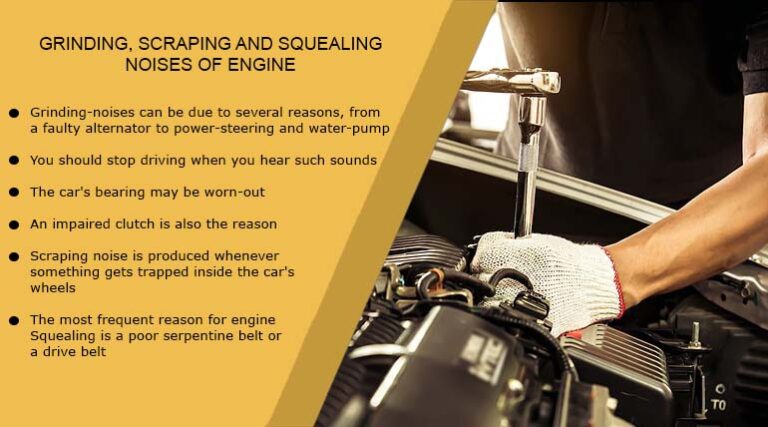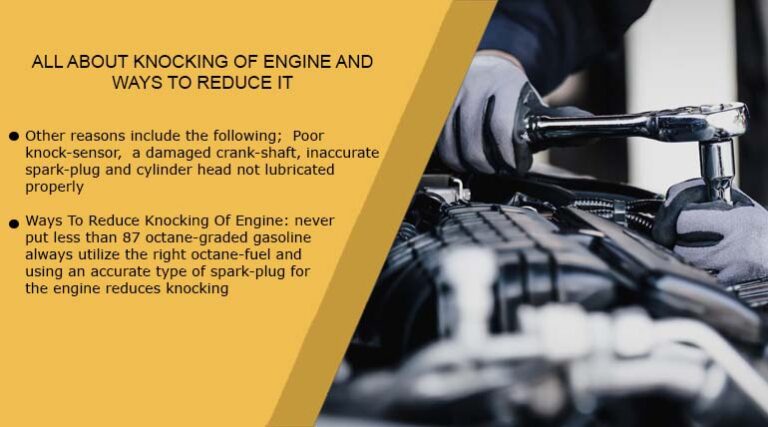12 Guaranteed Tips for Engine Maintenance: Make It Last Longer!
One of the best and most vital things one could do as a vehicle owner is to protect the car’s engine and make it last longer. Paying the required attention to the car’s engine is very crucial. Neglecting even minor disturbances leads it to lose its efficiency quickly. Your car’s engine is vital for giving you the required miles, but resolving its issues if you own car like BMW can cost you a lot. In this article, we will cover 12 guaranteed tips for engine maintenance to make it last longer. When you implement these tips, your car’s engine will give you the durability, reliability, and performance you ever wanted. Let’s begin, shall we?
12 Tips for Engine Maintenance:
Following are 12 guaranteed tips for engine maintenance to make it last longer. Implementing these practices will result in the best engine performance and longevity;
1. Changing the Engine’s Oil Consistently
Changing the engine’s oil is very crucial for efficient engine performance. The critical parts of the machine must be lubricated so that they will not get heated up excessively. The vehicle owner needs to make sure to keep a check on the engine’s oil. If the engine’s oil is not changed regularly, it leads to enduring engine damage leaving long-lasting impacts. Automotive manufacturers recommend changing the oil every five thousand miles.
2. Maintenance of the Cooling System
For ideal engine’s functionality, it is vital to have a certain quantity of coolant inside your vehicle’s engine. The radiating system includes a thermostat, coolant, water-pump, and a radiator. Whenever the engine gets hotter, the coolant starts circulating through the engine. This helps in cooling it down. Coolant is then pulled back by the water pump, and the cycle continues.
If you know the coolant amount is not limited, and your vehicle gets hotter, take it to a qualified mechanic. Get your cooling system checked!
3. Changing Air-Filter and Fuel-Filter
Besides fuel, the air is a vital element in making your engine run consistently. Changing the air-filter is important since this filter averts dirt from arriving at the engine. These filters also provide renewed air that is required for efficient engine functionality. Hence, changing and taking care of these filters is crucial for your engine’s longevity.
Similarly, a fuel-filter performs the same role in keeping your engine safe from particles or dirt, saving you from massive damage. Let Your Engine Breathe!
4. Never Ignore Auto-Engine’s Warning (Check) Lights
If the auto engine’s warning lights are ON, it is advised to look immediately for the issue. Neglecting it will cost your vehicle to face severe harm in the future, leading to costly engine damage and repairs. This is one of the essential tips for engine maintenance.
5. Keep a Check of the Engine for Leakages
There are two primary liquids that one needs to be sure of not leaking out of the engine;
- Anti-freeze
- Oil
One needs not to be a professional to look for leakage. It can be simply identified by just its smell. Engine hoses failure occurs due to pressure and extreme heat. The liquids that the engine requires, such as oil or antifreeze, face leakage. This may be due to rubber hoses which get very old and begin cracking up.
Ways to Check for Leakages;
- Sneak under the hood and make check for any unwanted smells.
- Look at the pavement where you have parked the car. Look for any leakages under your vehicle when you park it.
- If any leakages are present, take your vehicle to a mechanic. It saves your engine from many future problems that can happen due to such unwanted leakages.
6. Refilling the Gas Tank: Don’t Let It Get Short
Refilling the gas tank is very crucial. If a car is run down to vacant, all the debris and junk at the bottom of the barrel is pulled up. Gasoline has a significant amount of deposits in it. This deposit settled down at the bottom of the gasoline tank. When a car is driven for an extended period, much debris is deposited at the bottom of the fuel tank.
However, a moment comes when even the fuel filter cannot filter out the residue when a car is run continuously to the point that the tank gets empty. Internal impairment can occur inside the engine if this debris enters the filter. Keep up with your car’s engine health, so that it can stay thankful forever and keep up its efficiency.
7. Keep a Check on the Belts
If the belt is broken down, major accidents and damages can occur. Here, it is not about the dressing or its etiquette. Instead, the discussion is about the rubber belts in the engine. These belts are the primary force behind the functioning of other important vehicle components.
The function varies according to an individual car, but the primary role includes fan running, water-pump, AC (air conditioner) running, and alternator. An active engine is an indication of running belts. But when they are used too much, with time, they would start showing “wear” signs and start cracking up. Turn the belts over for the cracks check. A squealing belt indicates that your engine’s belt needs replacement or adjustment.
8. Running Engine at a Continuous Speed
It stresses the engine when a driver constantly starts and stops a car. This led to a damaged engine. Running a machine at a continuous speed is very important since engines are built this way. It is like a race; the runner keeps on running, so he wins, but it slows down the process when he constantly stops and runs again.
9. Keeping a Check of Wires and Sparks Plug
Keeping a constant check of your engine’s wires and the spark plug is one of the essential tips for engine maintenance. These wires and sparks plug help in the fuel’s ignition inside the cylinders. Manufacturers suggest changing both the spark plug and wire, each 30,000 Miles. However, some vehicles can take longer as well. Your engine remains healthy through a little wise investment; hence, never compromise.

10. Let Your Engine Breathe
Letting your engine breathe is very essential. Give it some rest and the care it requires, from checking the fuel’s level to a consistent check-up. Let it rest!
11. Use Correct Fuel (Engine Compatible Fuel)
Using the correct fuel according to your vehicle’s engine type is very important. Use gasoline as a fuel in gasoline-based engines. Whereas use diesel is fuel inside diesel-based engines. The octane number of the gasoline is determined in accordance with the owner’s manual of your vehicle. Hence, referring to it is very crucial before opting for fuel. Octane number varies from regular 87 octane-graded gasoline to mid-grade 89 and premium 91 to 93 octane-graded gasoline. Choose them wisely.
12. Use Higher Octane-Graded Gasoline
To prevent knocking of the engine, never utilize a gas with lower than 87 octane-rated gasoline. Else, it can lead to eternal engine damage.
Conclusion
To conclude, paying attention to the car’s engine is crucial. Neglecting even minor disturbances leads it to lose its efficiency quickly. Your car’s engine is vital for giving you the required miles, but resolving its issues can cost you a lot too. Tips for engine maintenance include consistently changing the air and fuel filter to the oil.
Moreover, using the correct fuel type is crucial to keep your engine from knocking and causing further damage. Keeping a check of engine wires, sparks, plugs, and any kind of leakages is also crucial for keeping up the efficiency of an engine.





